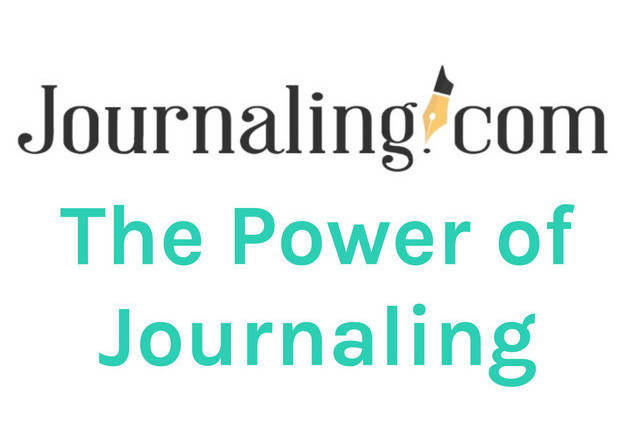Through her pioneering work at the Mayo clinic and her own experience facing cancer, Sandra Marinella is a witness to the ways writing transforms lives. Sandra is the author of the book The Story You Need to Tell; Writing to Heal from Trauma, Illness, or Loss. It’s a great privilege to welcome her to Journaling.com.
To learn more about Sandra’s work, listen to our conversation, or read below to see highlights from our talk.

If you’d like to listen to the full audio interview, look for The Power of Journaling wherever you find your podcasts!
The year Sandra turned nine, her family moved overseas. Sensitive to the challenge this transition raised, her father presented Sandra with two life-changing gifts—a copy of Louisa May Alcott’s story, Little Women, and a journal. When she’d finished Alcott’s book, Sandra followed in the footsteps of the story’s protagonists, Jo March, and started keeping a journal of her own. She’s been writing ever since.
The Red Journal
“We go to the page to find out who we are and to decide who we will become,†observes Sandra. When she received a cancer diagnosis, that’s just what she did. Sandra purchased a bright red journal and filled its pages with cathartic writing, poems, and lists.
Over time, journaling helped Sandra make sense of her circumstances. Expressive writing helped her manage cancer because it kept Sandra out of “panic mode†by providing:
- Catharsis. When we suffer a traumatic event, Sandra explains, it’s critical the tension is released. Journaling provides this opportunity.
- Understanding. The act of writing shifts our thinking and gives our brain the opportunity to recalibrate. New, deeper understanding ensures we aren’t controlled by fear and anxiety. Instead we are guided in positive new directions and we become centered.
The Power of Narrative Writing
Sandra’s work shows that story sharing has immense health benefits and can be done a variety of ways that include journaling, shares on social media, blogging, or talking with a therapist or a friend. What’s most important, Sandra’s determined, is that the story be released.
Over 1000 studies have been conducted that show healing is assisted by expressive writing. Sandra’s work at the Mayo Clinic suggests that with as little as two minutes of writing a day for two consecutive days, journalers can yield substantive results.
Sandra encourages us to write beyond our challenges and trauma by journaling about them within the context of our whole lives. This act impacts how we view our story and guides us forward in positive ways.
Narrative Medicine
Neuroscientists have proven that the stories we tell about ourselves define who we become. Sandra’s book reminds us that everyone carries their story inside, and that although these stories run the range from joyful to traumatic, we can determine which narrative will define us.
Narrative medicine is based on principal that we are the stories we choose to tell about ourselves. Sandra explains how every time we prepare a to-do list, we are making a plan for how we want our day to unfold. We are writing our story.
The narrative that we develop tells us who we are and this message guides our life, but sometimes the narrative breaks down. Divorce, illness, and other forms of loss can sneak into our story. Narrative medicine helps us understand the bumps along the way in order to reframe our narrative in the best possible terms and to make our story into the one we want to live with.
How to Practice Narrative Medicine
If you are grappling with a traumatic event you aren’t yet ready to write about, that’s okay. The mind needs time to hold that story, Sandra acknowledges, and to become familiar with it before you can shift details from the emotional right brain over to the analytical left side of your brain.
For when the time feels write to release your story, Sandra offers the following ideas:
- Use writing prompts. Guided prompts help get your pen moving and steer you gently toward the story you need to tell.
- Practice joy and gratitude writing. Sandra notes that these forms of expression help release melatonin in our brains which in turn helps us remember, even in the midst of challenging time, of all there is to be thankful for.
- Challenge writing. Sandra’s work is largely influenced by expressive writing pioneer Dr. James Pennebaker. Building on his work, she’s coined the term “challenge writing” to describe writing that explores and leads to the management of challenges.
Final Thoughts
It’s Sandra’s hope that more medical teams and individuals facing health challenges can integrate narrative medicine into their toolbox as a means for healing. The power of our stories can make us better.
Your Action Plan
- Learn more about Sandra’s uplifting work. Visit her online.
Facebook: www.facebook.com/storyyouneedtotell
Her website: www.storyyoutell.com
Instagram: Sandra Marinella@sandramarinella
Twitter at Sandra Marinella@sandramarinella. - Read Sandra’s book The Story You Need to Tell
- Listen to my conversation with Sandra.
- Practice challenge writing.
- Practice joy and gratitude writing. For help getting started, download Journaling.com’s free guide, 30 Days of Joy: How to Rewire Your Brain for Happiness.
If you found this conversation helpful, you might also enjoy our interview with Christina Baldwin. Breathing in Full Sentences: Journal Writing as a Spiritual Practice.